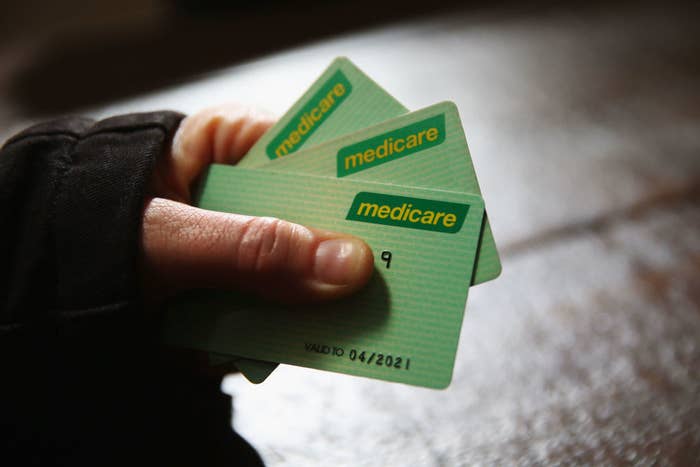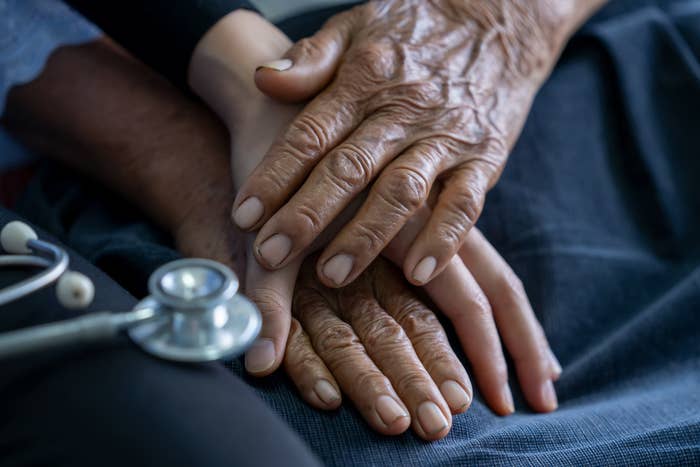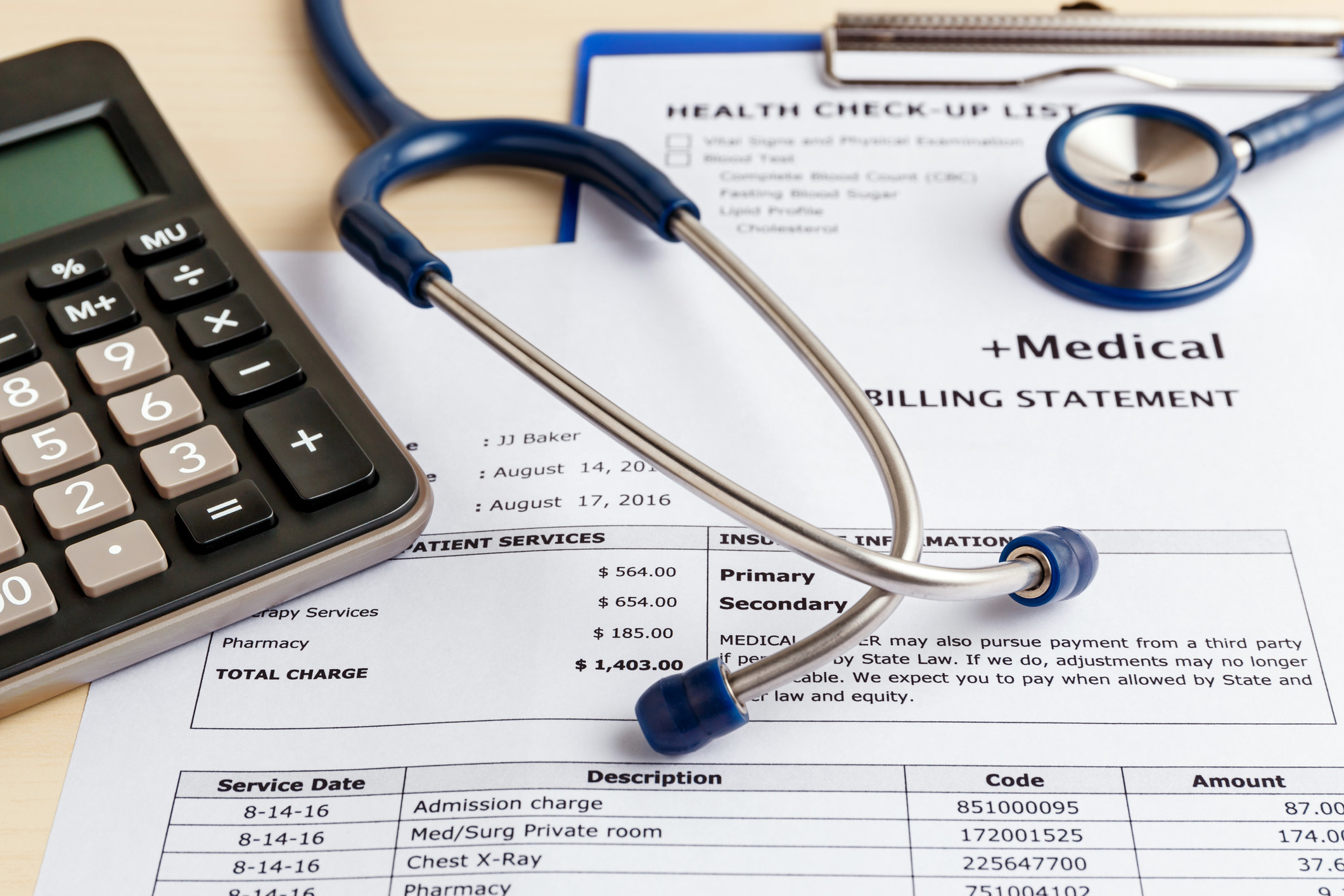Recently, my dad had hernia surgery. It wasn't too serious, but since he's in a labour-intensive job, the specialist he visited recommended getting it fixed sooner rather than later to avoid any complications down the line. When I discussed the surgery with my dad, I remember asking if there were costs that I could help cover — but, since we live in Australia and are covered by Medicare, the surgery didn't cost us a single cent.

For context, Australia has both a public and a private healthcare system. All citizens and permanent residents get access to Medicare, which is the universal public healthcare system run by the government that covers the cost of treatment in public hospitals and subsidises the cost of a wide range of health services, as well as medications under the Pharmaceutical Benefits Scheme.

So, I took to Reddit to dig through past conversations of the Australian and American healthcare system to learn a bit more about them. Here are some of the most insightful responses I came across that show how different healthcare is in Australia compared to the USA.
If you're interested in reading these Reddit threads yourself, here are the ones I looked at.
—"As an American, what is the Australian healthcare system like?"
—"Will Australian healthcare ever turn into American healthcare?"
—"Just want to say how good living in Australia is for medical injury."
1. "A big difference between Australia and the USA is in their approach to healthcare. We have healthcare; you have insurance. Your medical system is made up of a series of highly profitable expensive companies, which are made affordable by insurance. Insurance is made affordable by people who have it and don't use it. When you go to the hospital in America and the bill of $50k with a cost price of $5k is covered by your insurance, that $50k is still being paid to a company. Here, on the other hand, that $50k doesn't exist; only the actual cost price does. There's no profit to be made."
"Our public doctors are paid by the government. Our medicines are subsidised by the government and don't have multiple layers of profit gathering added to them before they reach the end user like in the USA. It's much cheaper to operate a healthcare system like ours with multiple public layers than it is to offer everyone discounted health insurance like Obamacare. For the USA to have a health system like ours, they need to get the term 'insurance' out of their vernacular. It's a completely different conversation."
2. "I'll give you my experience. I went to the GP [General Practitioner] because I was pissing blood. I'm from the country [in Australia], so no bulk billing, which meant I paid about $50 and got about $35 back. He ordered a blood test and ultrasound. I paid nothing for the blood test, and the ultrasound set me back about $90, and I got about $30 back. A mass was detected in my kidney, so I was told I need a CT scan. CT scan set me back about $700, and I got about $500 back. GP rang me and sent me to a urologist; this cost about $150, and I can't remember how much I got back. Urologist told me I need to have my kidney removed and booked me in for surgery."
"I should point out that my GP visit was on a Tuesday, and by the following Monday, I had visited the specialist and was booked in for surgery, so this all happened extremely quickly. Five weeks later, I went into surgery and had my kidney removed. This cost me nothing — and because I live in a regional area, I was reimbursed some of my fuel and accommodation for my partner by the state government. Overall, I had a positive experience, but the surgery time did drag out as it was meant to be within four weeks. I love the public health system, and we must protect it at all costs."
—u/spurnoff
3. "I'm an American, and I'm baffled by this [Australia's healthcare system]. I've had to have emergency surgery twice, a week in the hospital with complications and six weeks off of work recovering at home — and the whole time I'm worried about the insufficiency of paid sick leave and that my 'fairly decent' insurance via my employer was only going to cover 80% of the bill."
"I've known too many people with insufficient insurance coverage or no coverage. On top of not having any paid sick leave from work, they have decided to tough it out — 'I can't afford to be sick.' They've also needed to get bailed out of a medical bill when they could have been treated more successfully, and less expensively, if they could have not worried about the cost to go in when the problem was first presenting, rather than waiting 'til it was an emergency."
—u/trinlayk
4. "Last year, I was diagnosed with cancer. I had surgery, then radiotherapy. Last week, a review found no sign of disease. During treatment, I had frequent reviews with medical specialists (eight different specialists had input to my treatment). I was cared for by two physiotherapists, a dietician, a speech therapist and two oncology nurses, to a total of about 40 consultations with medical professionals. I didn't bother to add up my out-of-pocket expenses, but I'm sure it was under $1,000. I daresay it could be better. I pay a Medicare levy (2% of taxable income), plus, about $2,400 per year in voluntary private insurance premiums."
—u/ausrandoman
5. "More emphasis should be placed on how important (mostly) free access to GPs are. Got a minor cold, flu or other perfectly curable medical ailment? Don't worry, see the GP! You can afford it. While you're there, you will probably get the once over, and a larger problem on the horizon that may not have been detected will get caught. This protects the wider community in general. Perfectly curable conditions are stamped out instead of being spread throughout the community just because patient zero cannot stump up hundreds of dollars for a GP."
"People and their healthcare should not be treated as a 'cost centre' like in the US. It should be viewed as an investment in society."
6. "Even for rich people, the American system is rough. I am an Aussie now living in the US. Anytime friends are sick, they have very negative healthcare experiences, and statistically we are all financially in the top 5% of income earners. The US system is awful. Procedures can cost $100k. That's a lot of money, even for rich people and causes incredible amounts of health issues as people avoid preventative care due to cost. Health insurance is set by your employer, so if you are lucky, your employer has a great plan. But if your employer has a poorer quality plan, even if you are an ultra high income earner, you will receive substandard healthcare that could bankrupt you."
"I had surgery in the US with topnotch health insurance and was sent home for recovery the same day. I spoke to an Australian doctor mate, who was horrified I wasn't kept overnight like I would have been in Australia. I later found out I was sent home due to my insurance not covering the night in hospital for that operation. The US healthcare is not topnotch unless you are ultra rich (think top 0.5%). You won't find a single person with experience in Australian and US healthcare who would choose the US system."
—u/Laser45

7. "Caught meningitis, spent a week in hospital with three days in intensive care and walked out of the hospital with a $40 bill (for meds). Had a mate in the USA go through the same thing, and he is still paying off a $10k+ debt."
—u/pixelwhip
8. "While living in the US, we had private cover through our employer. However, I know some of the expenses I came across were just insane. Taking a child to the emergency department? $800. Multiple times over our stay. Two nights in hospital on a drip? $19,000. I stayed in hospital for nearly the entire first three months of my first pregnancy, and it was about $10,000 billed to my insurer in Australia."
"Healthcare in the USA has created its own ridiculous micro-economy with prices inflated to absolutely staggering degrees. Universal healthcare keeps this in check. It's also a huge relief not to have to worry about becoming sick. There's no "Can I afford to take my kid to the hospital?" and no "Oh god, I've got cancer, I'll go bankrupt." It's practically unheard of to go bankrupt here [in Australia] over medical expenses. I can't imagine living with the constant anxiety of whether I could afford basic healthcare."
9. "My partner is American, and he marvels at it. We have had two kids under the public health system and only ever had to pay a max of $300 out of pocket each for ultrasounds that were optional. Each time, I was cared for by an assigned obstetrician and team of midwives at a large hospital. Both of my births were also high risk and ended in emergency cesareans with one baby taken into neonatal care after birth for heart checks. We paid next to nothing. My partner marvels because just one of those birth situations could have easily been a $20k bill in the States."
—u/littlespoon
10. "I'm an Australian who lived in America for a pretty long time. I was paying around $500 a month for top tier health care in Los Angeles. It was absolute dog shit. The couple times I had to go into emergency, I had to wait hours, often bleeding, in the waiting room. The handful of times I had to go to 'urgent care,' I had to make an appointment or else wait for HOURS — sometimes as long as three hours, and this is with TOP TIER healthcare. When I have a regular check-up, it is booked weeks in advance, and the actual consultation is less than five minutes, and I am rushed out the door with no explanation of my results. Then, afterwards, trying to pay for co-pays or additional fees, or incorrectly billed invoices, was a part-time job."
"Many of my friends, including myself, would often go to doctors whom we paid cash without insurance just to not deal with the insurance bullshit."
11. "I'm not even a permanent resident [in Australia] yet. I had to get an emergency c-section last year, and Medicare covered it all. I couldn't live in a country like the US where something could completely bankrupt you anytime."
"I broke my finger in the States and literally my first thought was, 'I don't have money for this.' Fortunately, it 'only' cost me $3,500."
—u/RubyFurness
12. "I'm an American living in Australia, and I had a similar situation. I had heart palpitations that landed me in the ED; I spent the night there and got x-rays, ultrasounds, CTs and multiple EKGs done. Walked out without having to pay anything. Later, I went to a cardiologist for an echo, and it was around $300. That ED bill back home would've been close to, if not over, $10,000. An echo back home would've cost me $5,000."
"I'm pretty much only alive because my heart decided to act up while living here. Had I been back home, I wouldn't have been able to get it sorted because I couldn't pay for it, and it’s possible I could've died. I’m ridiculously grateful for Medicare here."
—u/paleoterrra
13. "Reading all the bullshit going on with healthcare overseas made me feel very lucky. I injured my ankle at work at 9 a.m. I got an appointment at 10:20 a.m. and had an x-ray done at 11 a.m. It's 12 p.m., and I'm at home pumping pain killers and go back for the results in a few days. It cost me $44 for the day. Wish people overseas could sort their shit out. We [Australians] are not perfect, but I have no complaints at all today."
14. "Last time I was in the USA, I developed a bit of a skin problem and needed to see a doctor. I called my travel insurer who had me talk to a nurse over the phone and then pointed me to a walk-in clinic near the hotel. My travel insurance had a $250 excess for medical care, and I commented that I probably wouldn't reach that threshold. The insurance guy laughed and advised me to make sure I kept all my receipts. He was right — just a GP visit and a tube of prescription cream cost me $370!"
"I just couldn't believe that Americans were paying that much for basic healthcare. Here, the GP visit would have been bulk-billed, and even if the cream was highly specialised, it would have only set me back $40 on PBS (less if I was low/no income)."
—u/_seawolf
15. "I have MS [multiple sclerosis]. I went through a treatment called Lemtrada; it's sort of like chemo. In America, it costs about $20,000-$30,000 per dose. I had eight doses. Here, two weeks in hospital cost me, like, $50 (including buying the nurses lollies). PBS covered the Lemtrada entirely, and that saved my bacon. Australia has a lot of issues, but at least the healthcare system sort of works."
—u/Kidkrid
16. And lastly, "We had our first child in Australia. Zero hospital bill, plus, we got the $5,000 baby bonus (this was back in 2008). Our second was born in the US, and we paid $5,000 after our insurance picked up the rest of the $35,000 bill."
—u/standtall122
Some Reddit submissions have been edited for length and/or clarity.
